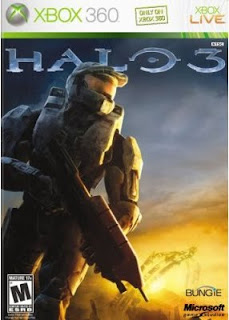 |
| Which is which? |
But what exactly is a "hardcore gamer"? And what constitutes a "casual gamer"? Do these terms represent real-world groups of people? And if yes, then what are "hardcore games" and "casual games"? There seem to be two parallel definitions at work, one that makes more sense than the other.
The first defines the hardcore gamer as one who devotes significant time, energy, and money into playing games. The "core" in hardcore is integral for this definition. These enthusiasts are in many ways the core of the video game consumer population. They are foundational. And around this core of dedicated gamers has built up another strata of less enthusiastic "casual gamers," those who commit less time, less energy, and far less money into video games. If we go by this definition, casual gamers are by far the bigger group. Not that many people in the world own a PS3, Xbox 360 and Wii, and buy $60 games regularly for them. Many more people own a single system and play a few favorite games again and again; some simply play free-to-play games in an online browser.
 |
| Is this game "casual" or "hardcore"? Does it even matter? |
The second definition depends less on the "core" and more on the "hardcore." In this version, "hardcore gamers" are those who invest in more violent and adult-oriented video games: Call of Duty, Grand Theft Auto, Assassin's Creed, etc. Conversely, the casual gamer is one who invests in family-friendly video games like Super Mario, Kirby, Just Dance, etc. If we go by this definition, I'm not so sure which is the bigger group. So-called casual games are incredibly popular, but last year's Call of Duty: Modern Warfare 3 sold 26 million copies on Xbox 360 and PS3 combined.
In any event, these definitions are clearly at odds with each other. One focuses on time, energy, and money invested; the other focuses on content. One presupposes the existence of "hardcore" and "casual" games; the other does not.
The first definition makes more sense, mostly because "hardcore" and "casual" games are misnomers. There are no hardcore and casual games. There are good games and bad games, and this is the dichotomy video game fans should worry about. Those who self-identify as hardcore gamers but who ignore Wii Sports, Animal Crossing, Katamari Damacy, Banjo-Kazooie, and LocoRoco just because they seem too "casual" and "kiddie" are doing themselves a disservice; and by closing themselves off to a huge chunk of the video game market, they aren't being very hardcore at all.
 |
| Halo 3 seems "hardcore," but how many users actually bothered to finish the campaign? |
We need to stop using descriptive words in the place of normative words. "Violent," "dark," and "mature" are useful in describing a video game, but not useful in assigning value. And this is true for other media as well. Too many cite The Empire Strikes Back's "darkness" as a primary reason for its greatness compared to other Star Wars movies. No, it was great because it had a better story, a better screenplay, better acting, better special effects, better direction. Not because it was darker.
This problem infects critics and fans, and it needs to stop. If we are ever to have a productive conversation about the video game industry, about healthy gaming habits, and about pushing the boundaries of the art form, we need to move away from hardcore versus casual, and focus more on building an inclusive gaming community that rewards innovation and excellence and doesn't ridicule video game players for choosing The Sims over StarCraft.
Finally, I leave you with this quotation from C.S. Lewis:
Critics who treat adult as a term of approval, instead of as a merely descriptive term, cannot be adult themselves. To be concerned about being grown up, to admire the grown up because it is grown up, to blush at the suspicion of being childish; these things are the marks of childhood and adolescence. And in childhood and adolescence they are, in moderation, healthy symptoms. Young things ought to want to grow. But to carry on into middle life or even into early manhood this concern about being adult is a mark of really arrested development. When I was ten, I read fairy tales in secret and would have been ashamed if I had been found doing so. Now that I am fifty I read them openly. When I became a man I put away childish things, including the fear of childishness and the desire to be very grown up.

No comments:
Post a Comment